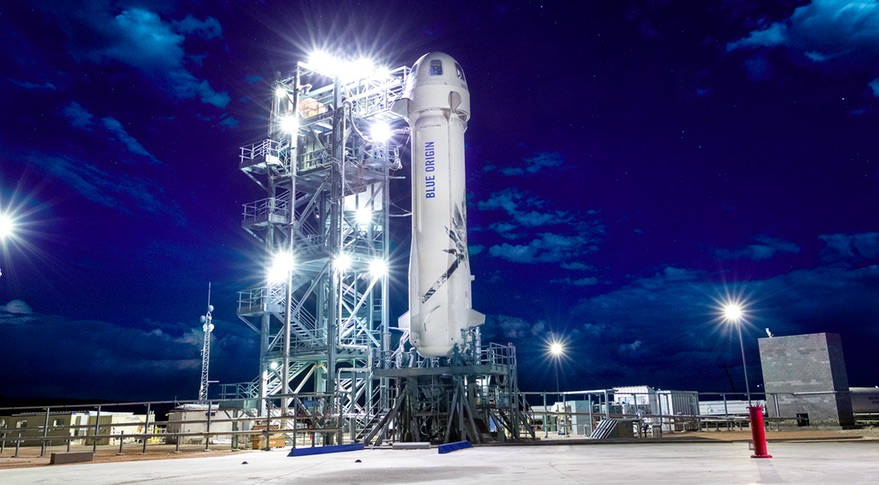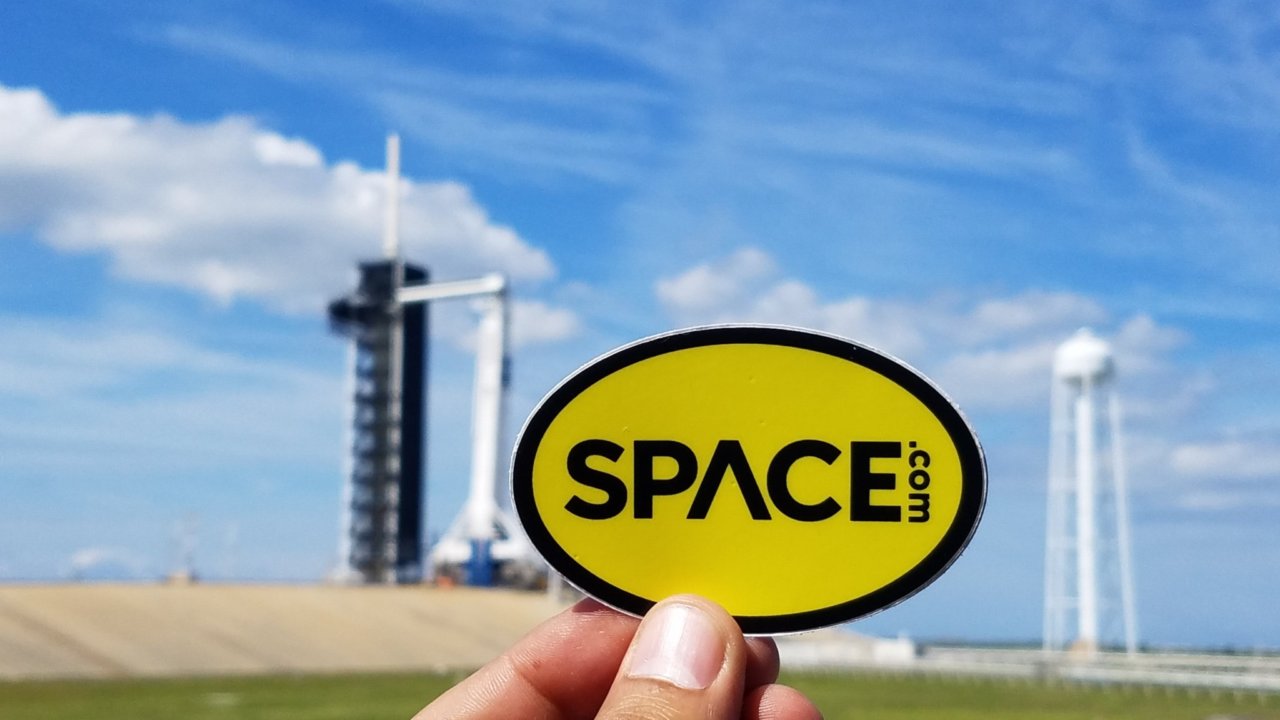WASHINGTON — Blue Origin plans to conduct the next test flight of its New Shepard suborbital vehicle Dec. 18 as the company moves closer to flying people into space.
In a statement Dec. 17, the company said the next New Shepard flight, designated NS-10, will take place Dec. 18 at 9:30 a.m. Eastern from its West Texas test site that has hosted all previous New Shepard tests. The flight, like several past flights, will be webcast. The statement came after the publication by the Federal Aviation Administration of restricted airspace around the company's launch site for a three-day period starting Dec. 18.
The flight will be the first for New Shepard since a July 18 launch that tested the abort motor in the crew capsule. The motor fired shortly after the capsule separated from its propulsion module, with the capsule making a regular landing under parachutes while the propulsion module made a powered vertical landing. [Blue Origin's New Shepard Spacecraft in Pictures]
The NS-10 flight will use the same propulsion module and crew capsule as the July flight, but is intended to be a more standard suborbital spaceflight. The vehicle will be carrying nine experiments provided by NASA's Flight Opportunities program, the company said. As with all previous flights, there will be no people on this New Shepard mission, but the company noted that the research payloads play a "role in perfecting technology for a future human presence in space."
The experiments on the flight are from a mix of universities, institutes and NASA centers. The payloads range from microgravity research payloads in fields like fluid dynamics and planetary science to technology demonstrations that will monitor conditions in the vehicle.
This New Shepard flight comes less than a week after Virgin Galactic performed the first flight of its SpaceShipTwo vehicle to reach the edge of space. That flight carried four NASA Flight Opportunities payloads. Three of those payloads — a vibration isolation platform from Controller Dynamics Inc., an experiment to map the behavior of dust particles on planetary surfaces from the University of Central Florida and a biological fluorescent imaging instrument from the University of Florida — are also flying on the New Shepard mission.
That SpaceShipTwo flight Dec. 13 reached a peak altitude of 51.4 miles (82.7 kilometers), above the 50-mile (80.5 km) level where U.S. government agencies award altitude wings but below the 62-mile (100 km) Karman Line often used as the boundary of space. That's led to some debate about whether SpaceShipTwo actually flew to space.
Get the Space.com Newsletter
Breaking space news, the latest updates on rocket launches, skywatching events and more!

By contrast, most New Shepard test flights have flown to altitudes above 62 miles, including 73.8 miles (118.8 km) on the latest flight thanks to the additional boost provided by the escape motor. The upcoming flight is also expected to exceed 62 miles.
Both Blue Origin and Virgin Galactic are preparing to start flying people on their suborbital vehicles in 2019. Richard Branson, founder of Virgin Galactic, confirmed in an interview after the latest SpaceShipTwo flight that he plans to be on the first commercial SpaceShipTwo flight, which could take place after a handful of additional test flights. "Sometime next year, once the testing is finished, then I'll do my flight," he said.
Virgin Galactic has about 700 customers who have paid at least a deposit on tickets that cost up to $250,000. Branson said that the company, which stopped selling tickets four years ago after a test flight accident destroyed the first SpaceShipTwo, would resume taking reservations again soon. That ticket price "will go up a bit," Branson said, but decrease a few years later. [In Photos: Virgin Galactic's SpaceShipTwo Unity Soars to Space in 4th Powered Test]
Blue Origin has yet to start selling tickets for New Shepard flights, although one official said in June ticket sales could begin in 2019. Company executives, including founder Jeff Bezos, said earlier this year they hadn't even decided yet on a ticket price for those flights, waiting until the vehicle is further along in its test program before doing so.
"We continue to be head down on making sure the configuration is good and stable and ready to fly," Bob Smith, chief executive of Blue Origin, said in an April interview on the status of New Shepard development. "Once we all feel confident that that's the case, then we'll have the conversation internally about what prices are and what that whole process looks like."
That process has taken longer than what company officials previously suggested. Speaking at a suborbital research conference in December 2017, Jeff Ashby, director of safety and mission assurance for Blue Origin, said the company was "roughly a year out from human flights, depending on how the test program goes."
"I'm hopeful it will happen in 2019," Bezos said during an on-stage interview at the Wired25 conference in October when asked when Blue Origin would start flying people on New Shepard. "I was hopeful it would happen in 2018. I keep telling the team that it's not a race. I want this to be the safest space vehicle in history."
This story was provided by SpaceNews, dedicated to covering all aspects of the space industry.
Join our Space Forums to keep talking space on the latest missions, night sky and more! And if you have a news tip, correction or comment, let us know at: community@space.com.

Space.com is the premier source of space exploration, innovation and astronomy news, chronicling (and celebrating) humanity's ongoing expansion across the final frontier. Originally founded in 1999, Space.com is, and always has been, the passion of writers and editors who are space fans and also trained journalists. Our current news team consists of Editor-in-Chief Tariq Malik; Editor Hanneke Weitering, Senior Space Writer Mike Wall; Senior Writer Meghan Bartels; Senior Writer Chelsea Gohd, Senior Writer Tereza Pultarova and Staff Writer Alexander Cox, focusing on e-commerce. Senior Producer Steve Spaleta oversees our space videos, with Diana Whitcroft as our Social Media Editor.










